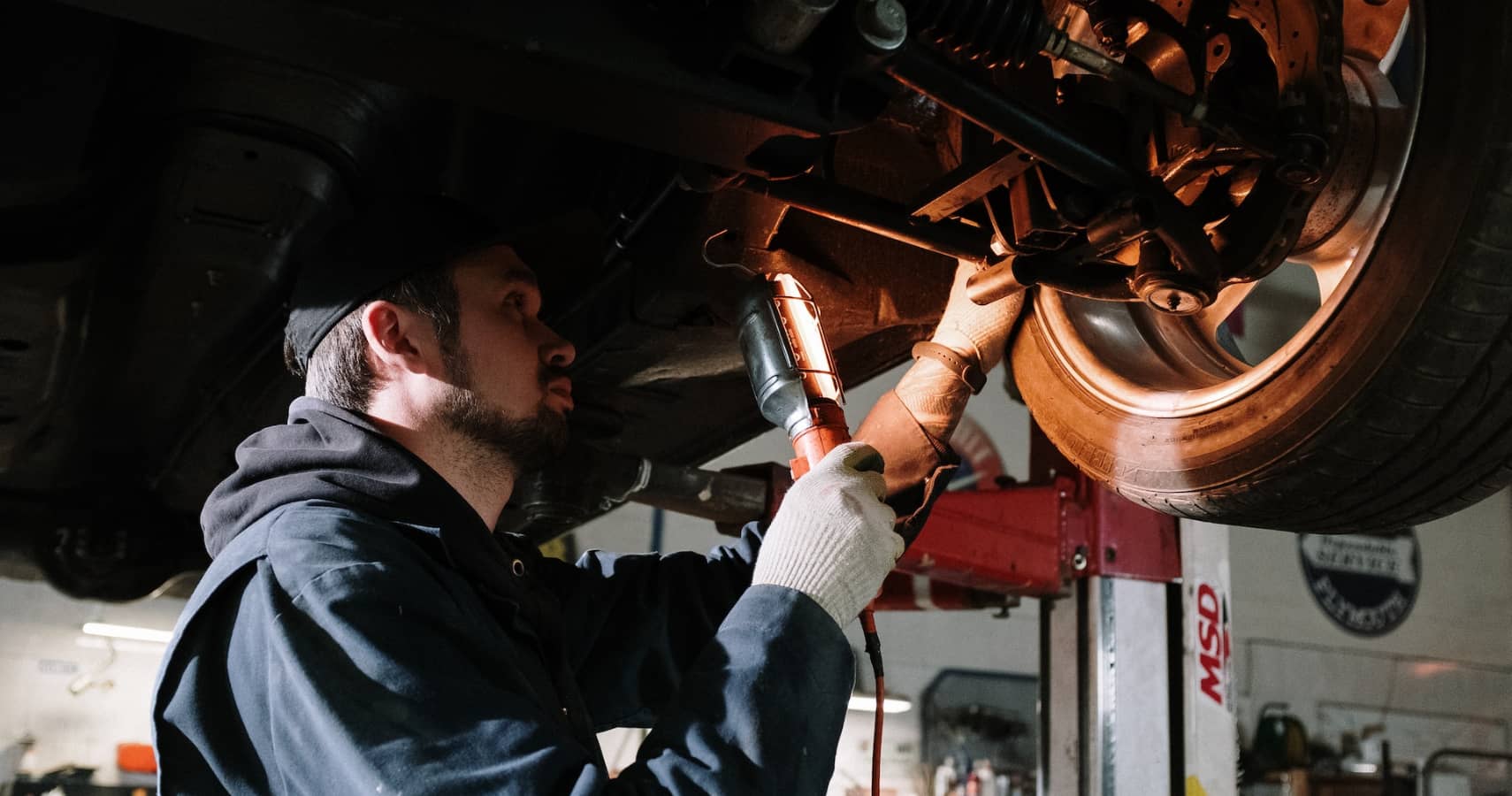Nothing beats the thrill of owning a car. It gives you convenience, freedom, and the ability to explore the world around us. Whether it’s commuting to work, embarking on a road trip, or simply running errands, our cars play a huge role in our daily lives, and so do car inspections.
But, it’s all fun and games until you find yourself in a sticky situation, especially because of a neglected car. Breakdowns. Accidents. It happens. All of a sudden, the wind in your hair feels more like a whirlwind of trouble. That’s where car inspections come in. They’re not just some boring chore; they’re the secret weapon in your quest for road safety.
With such reliance on our cars, it becomes crucial to ensure their proper functioning and safety. It might seem like an expense or an inconvenience, but inspections should never be overlooked. Malawi Road safety laws governing car inspections might be different from other countries, but the goal is to make road travels safer. If performed properly by a qualified technician, a comprehensive car inspection can provide you with peace of mind while saving you from potential troubles down the road.
In this post, we’ll unravel the key aspects of car inspections. We will also expose the risks of ignoring these inspections and share about what to do if your car fails inspections, all while revealing how they can be your trusty sidekick in maximizing your car’s lifespan.
Here’s what you should know about car inspections and how to go about them.
What Do They Check When They Do A Car Inspection?
Another important thing to consider when it comes to car ownership besides your safety is also the safety of those on the road around you. Thus, inspections aim at keeping everyone safe.
Keep in mind, the things checked in inspections are like double agents—they’re prone to police inspections too! It’s a tricky game where the country’s laws and regulations hold all the cards. So, stay sharp.
If you are pulled over, police can check for and give citations for the following:
- Brake lights
- Headlights
- Turn signals
- Taillights
- Suspension
- Steering
- Exhaust systems
- Tires
- The overall health of the car
- Noise and muffler issues
Your mechanic’s inspection and a police officer’s checklist often overlap. It’s almost like having a secret weapon in your back pocket. It’s not just about your safety. It’s also about being a considerate driver, a good neighbor, and an eco-conscious citizen.
The Most Important Things Checked During Car Inspections
In this section, we will dive into some of the most crucial parts that undergo meticulous scrutiny to ensure your vehicle’s optimal performance and compliance with regulations.
Brakes
Checking the brakes during a car inspection is almost like giving your vehicle a crystal ball. Not only does it reveals current problems. It also predicts potential issues down the road. That’s why checking the brakes should be a mandatory part of any car inspection.
Waiting too long to have your brakes attended to can not only become dangerous. It’s like waiting for trouble to knock on your car’s door. If you take care of your brakes, you will enjoy a smoother ride while keeping both your car’s efficiency and health in tip-top shape.
Inspection of your car’s brakes includes the brakes themselves, the brake fluid, and the brake pads.
Wheels And Tires
Tires are one part of a car inspection procedure that is often overlooked, particularly the thread. It’s true! We might remember everything on the list, from the tire pressure to punctures, but the threat is often left out. However, the thread is a significant factor in tire inspections.
When your tire tread is too low, your car loses traction on the road. Unless you love kicking the rear in drift scenarios (more likely on a closed circuit), you won’t enjoy low traction. Because while it can be dangerous on dry roads, the last situation you want is to lose traction in rainy or icy conditions. It’s because of these factors that many cold-weather climates are stricter in their inspection laws and regulations.
Aside from checking all the threats, it’s important to check for cracks or rots of any kind.
Exhaust And Emissions
Many countries charge tax on vehicle imports based on a car’s emissions, including Malawi, Tanzania, and South Africa. It’s comprehensible. Cars contribute to a lot of pollution issues. So, such countries are more rigid in their laws regarding emissions standards. To help regulate air quality, the inspections are set for exhaust and emissions.
Besides the go-greener standpoint, this inspection segment helps in keep us all safe while we travel. They also test functionality and ensure the quality of the systems, ensuring that it performs efficiently. Without proper maintenance in this area, carbon monoxide, which is highly poisonous, can easily leak into the passenger compartment.
If inspectors identify any blockages or cracks, you’ll need either replace or clean the system.
Engine Compartment
In our road trip preparation checklist, we talked about checking for fluid levels, which include transmission fluid, engine oil, and more. Like fuel leaks, oil leaks can be very hazardous if they go undetected. If you drive the car on a daily basis, breakdowns, fires, or, in worst cases, accidents, are almost inevitable if these problems go undetected. The engine compartment inspection checks for oil leaks in the engine and transmission, ensuring that there are no leaks, cracks, or early corrosion that could lead to leaks.
Fuel Systems
Fuel lines are like the unsung heroes of your car’s performance, so to speak. This is because they carry the lifeblood of your engine. They aren’t something you should mess with. Otherwise, you’re literary playing with fire.
Something as simple as a leak or blockage in fuel lines can be disastrous, turning your car into a fireworks display. Those stout-looking Rubber hoses can crack with age. Steel lines can also rust over and add an extra layer of danger.
An inspection helps catch these problems in advance. They will check each part of the fuel system for efficiency, covering every nook and cranny. Keep in mind, a strong gas smell from your car can also be a signal of a fuel leak in one of the hoses. But a regular inspection will help prevent that leak from becoming a disaster. If you do spot worn-out tubes, have them replaced as soon as possible.
What Can Cause Car Inspections to fail?
When it comes to failing a car inspection, the possibilities are as diverse as a traffic jam playlist. Believe us on this. There are so many things that can cause a car to fail inspections. The important thing to remember here is that a failed inspection means that there is something wrong with the car that could potentially be dangerous to you and the people around you. A failed inspection is like a warning sign flashing in neon—it indicates a potential danger ahead.
But don’t panic! This doesn’t automatically mean your car is a ticking time bomb. It could just be a glitch that has the potential to snowball into a bigger issue. This is where your local regulations come in. Check with your local authorities for any specifics that will apply to you.
Regardless, expect minimum standards to ensure functionality and your vehicle’s prowess.
Below are several prevalent reasons why vehicles often fail inspections:
- Leaks or corrosion in any major components
- Exhaust Gas Recirculation malfunction
- Brakes not functioning at a high enough percentage
- Warning lights on your dash panel
- Damaged sparkplugs
- Lights that have blown
Many times, the things that will cause a failed inspection are quite minor. But they are always things that could lead to a bigger issue that causes safety concerns.
What To Do If You Fail car Inspections
If your car doesn’t pass the inspection, you’ve got a few intriguing options up your sleeve. However, it will largely depend on your car’s issue. If it’s something simple like, say, a light being out, you can easily speak with the garage about the necessary costs and fees to get you back on the road.
But hey, sometimes the car mystery runs deep, and even the garage becomes a detective trying to crack the case. But, of course, once the diagnosis is in, it’s decision time. And by that, we mean your car’s fate rests in your hands.
In some cases, it might be worse. In vintage wheels, for instance, the only solution might be a dramatic showdown where you just have to sell the old faithful car and buy a shiny new ride. But we know how close owners can get with their cars. But, no worries. You can also opt for repairs and replacements. A sprinkle of repairs or part replacements can grant your vehicle a second chance at inspection stardom.
Final Thoughts On Car Inspections
In closing, car inspections really exist for the safety of you, the car owner, and everyone on the road as well. A car inspection is so important because it helps prevent breakdowns. Keeping the car’s performance features in check doesn’t just keep it healthy, but it also saves you money and headaches in the long run. Getting your car inspected prevents costly issues that can quickly snowball.
Make sure to have your car inspected when you bring it in for an oil change, or at the very least, every year to ensure that your vehicle is both safe and functional. If you ever need roadside assistance, you can always call Alonda.





Leave a Reply